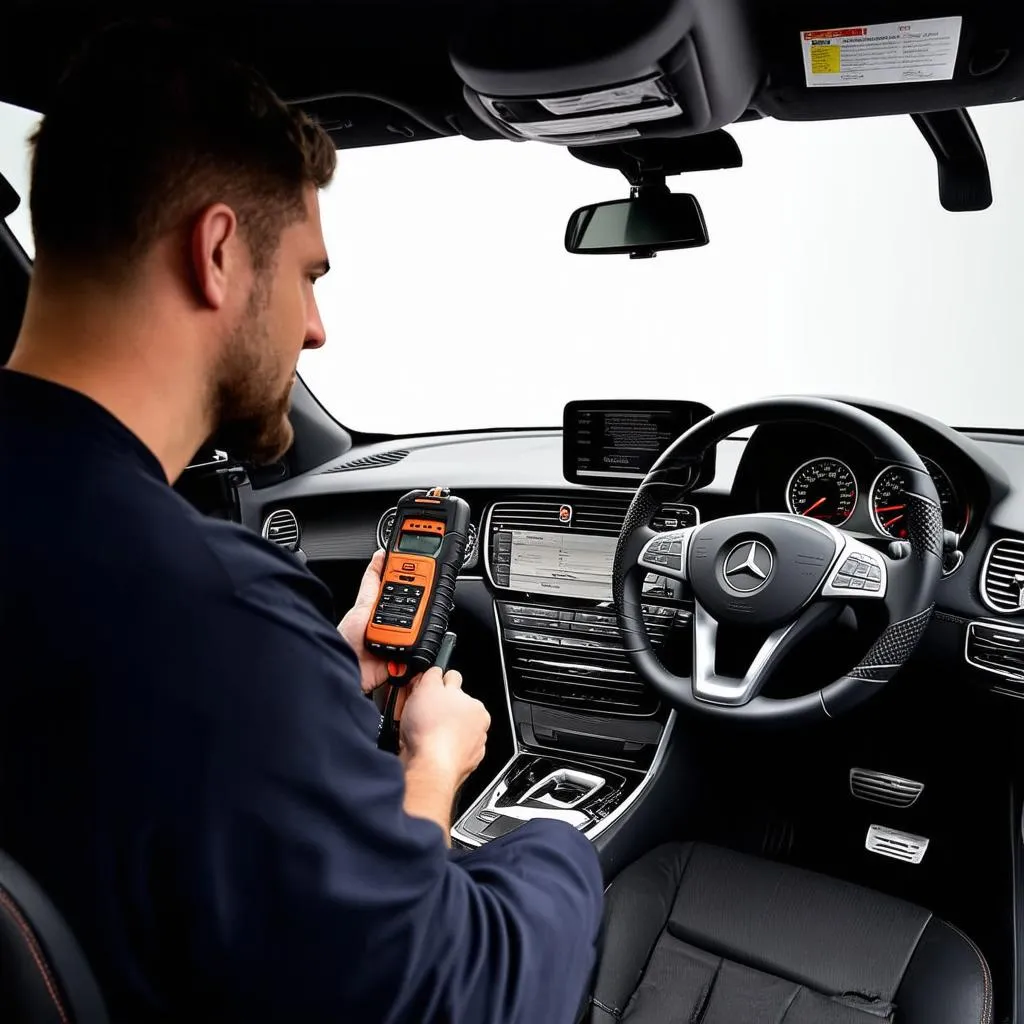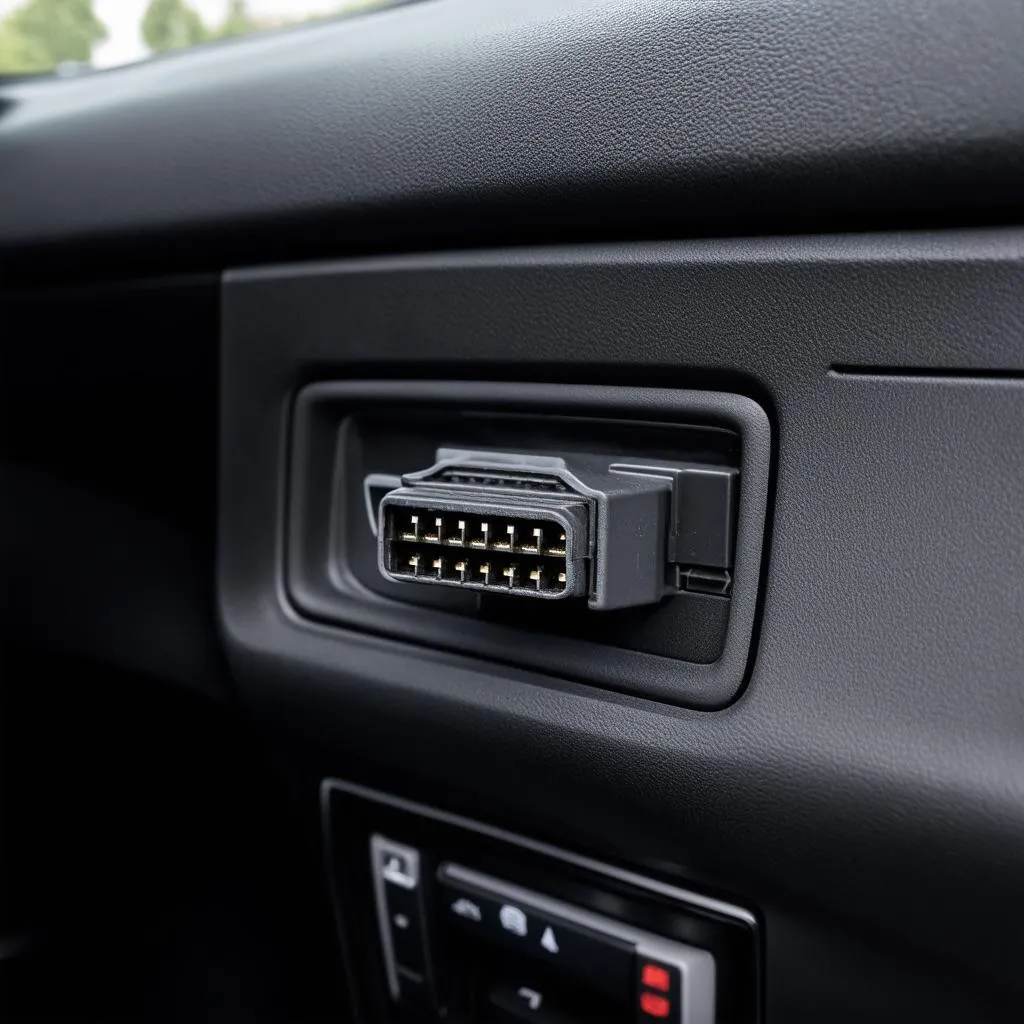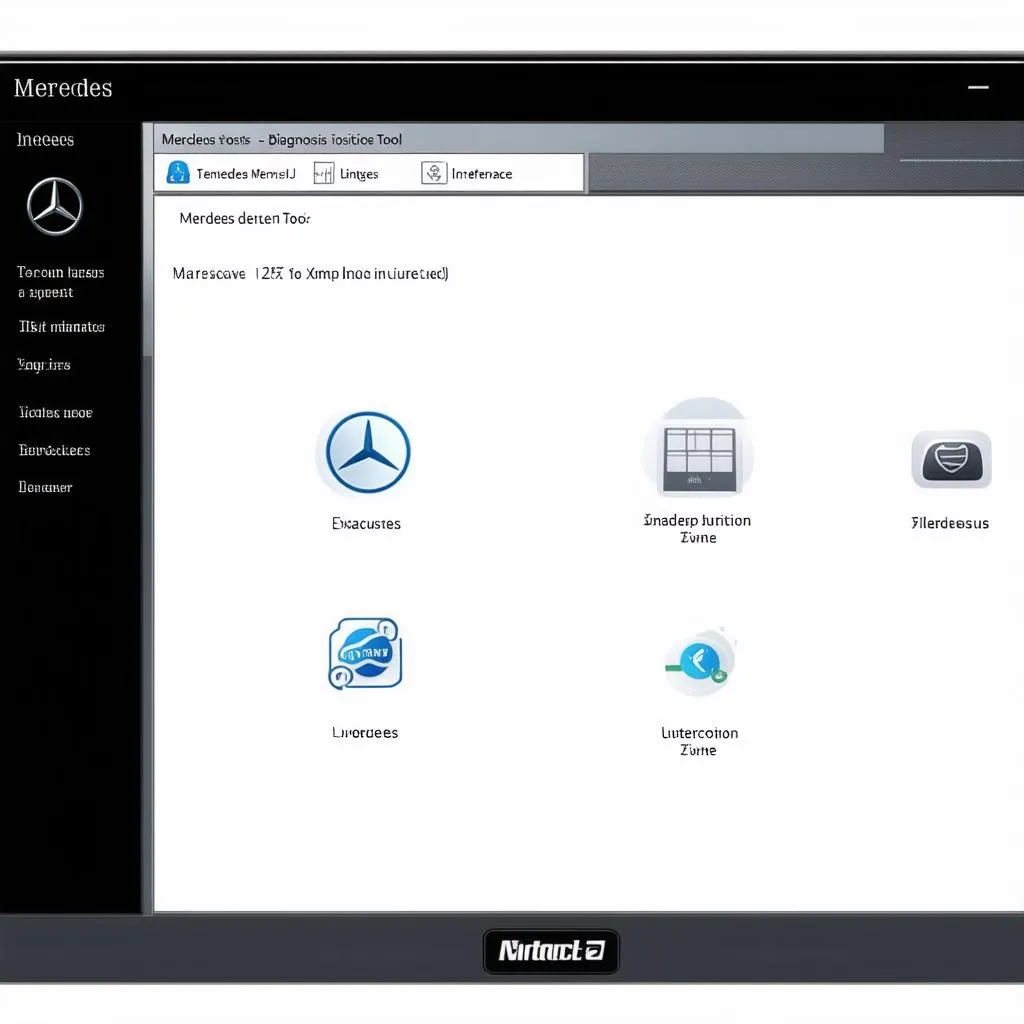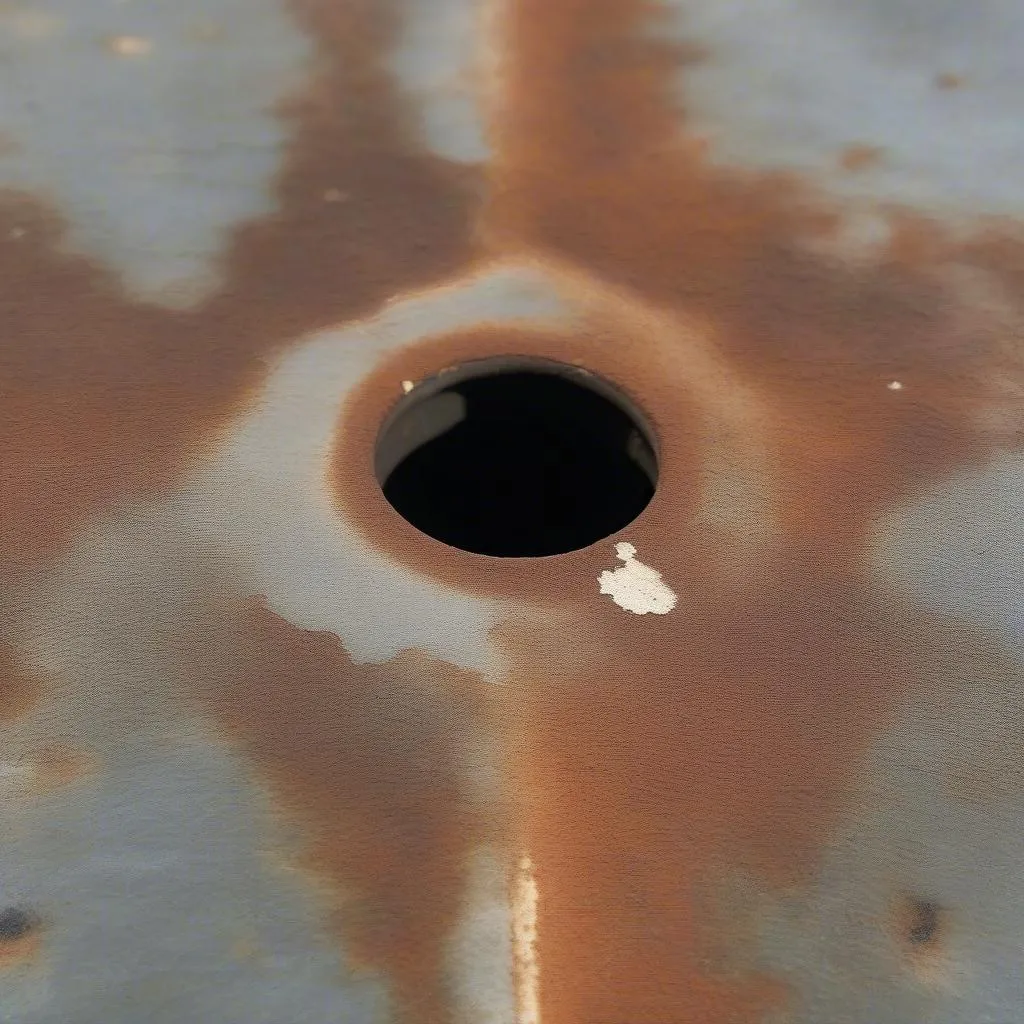Owning a Mercedes Benz is a dream for many, but even these luxurious vehicles can experience issues. When problems arise, a diagnostic for Mercedes Benz is essential for identifying and resolving them efficiently. Whether you’re a seasoned mechanic or a DIY enthusiast, understanding the ins and outs of Mercedes diagnostics can save you time, money, and frustration.
Understanding Mercedes Benz Diagnostics
A diagnostic for Mercedes Benz refers to the process of using specialized software and hardware to communicate with your car’s onboard computer system. This system, also known as the On-Board Diagnostics (OBD) system, continuously monitors various components and systems within your vehicle. When a problem is detected, the OBD system stores a fault code, providing valuable insight into the root of the issue.
Why Diagnostics Matter
- Accurate Identification: Diagnostics pinpoint the exact cause of problems, eliminating guesswork and unnecessary repairs.
- Early Detection: By catching issues early, diagnostics can prevent minor problems from escalating into major (and costly) repairs.
- Improved Performance: Addressing issues through diagnostics helps restore and even enhance your Mercedes’s overall performance and fuel efficiency.
- DIY Empowerment: With the right tools and knowledge, even car owners with limited technical expertise can use diagnostics to troubleshoot basic problems.
Types of Diagnostic Tools for Mercedes Benz
There’s a range of diagnostic tools available, each offering varying levels of functionality:
- Code Readers: These entry-level devices primarily read and clear basic OBD-II codes, making them suitable for simple diagnostics.
- OBD-II Scanners: A step up from code readers, scanners provide more detailed information about fault codes, including live data streams from various sensors.
- Professional-Grade Scanners: Used by mechanics and dealerships, these sophisticated tools offer comprehensive diagnostic capabilities, including advanced programming and coding functions.
 Mercedes Diagnostic Tool
Mercedes Diagnostic Tool
Choosing the Right Diagnostic Tool
The ideal diagnostic tool depends on your needs and technical proficiency. For basic troubleshooting, a code reader or OBD-II scanner might suffice. However, for more in-depth diagnostics, coding, or working on a wider range of Mercedes models, investing in a professional-grade scanner is recommended.
Expert Insight: “When choosing a diagnostic tool, compatibility is key,” advises automotive electronics specialist, Dr. Emily Carter. “Ensure the tool you select is compatible with the specific model and year of your Mercedes Benz to ensure seamless communication.” – Automotive Electronics Demystified, 2nd Edition
Using a Diagnostic Tool for Your Mercedes
While the exact process may vary depending on the tool, here’s a general overview:
- Locate the OBD-II Port: This port is typically located under the dashboard on the driver’s side.
- Connect the Tool: Plug the diagnostic tool into the OBD-II port.
- Turn On the Ignition: Turn the ignition key to the “on” position without starting the engine.
- Access the System: Follow the on-screen prompts of your diagnostic tool to access the OBD system.
- Read and Interpret Codes: The tool will display any stored fault codes. Refer to a reliable source to understand the meaning of each code.
 Mercedes OBD2 Port
Mercedes OBD2 Port
Common Questions About Mercedes Benz Diagnostics
Q: Can I use a generic OBD-II scanner on my Mercedes?
A: While generic scanners can read basic OBD-II codes present in all vehicles, including Mercedes, they might not access manufacturer-specific codes crucial for diagnosing more complex issues.
Q: Do I need to take my Mercedes to a dealership for diagnostics?
A: Not necessarily. Depending on your technical comfort level and the complexity of the problem, you can perform diagnostics and even some repairs yourself using the appropriate tools and information.
Q: Are there any risks associated with using diagnostic tools?
A: When used correctly, diagnostic tools are generally safe. However, it’s crucial to avoid altering settings or commands you don’t fully understand, as this could potentially impact your vehicle’s performance.
Cardiagtech: Your Partner in Mercedes Diagnostics
Navigating the world of automotive diagnostics can seem daunting, but it doesn’t have to be. At CARDIAGTECH, we offer a wide range of diagnostic tools, resources, and expert support to help you keep your Mercedes running smoothly.
Explore our selection of Mercedes diagnostic tools and unlock the power of DIY car care.
Don’t hesitate to contact us for personalized guidance in choosing the right diagnostic solution for your Mercedes Benz. We’re here to help you become a more informed and empowered car owner.


